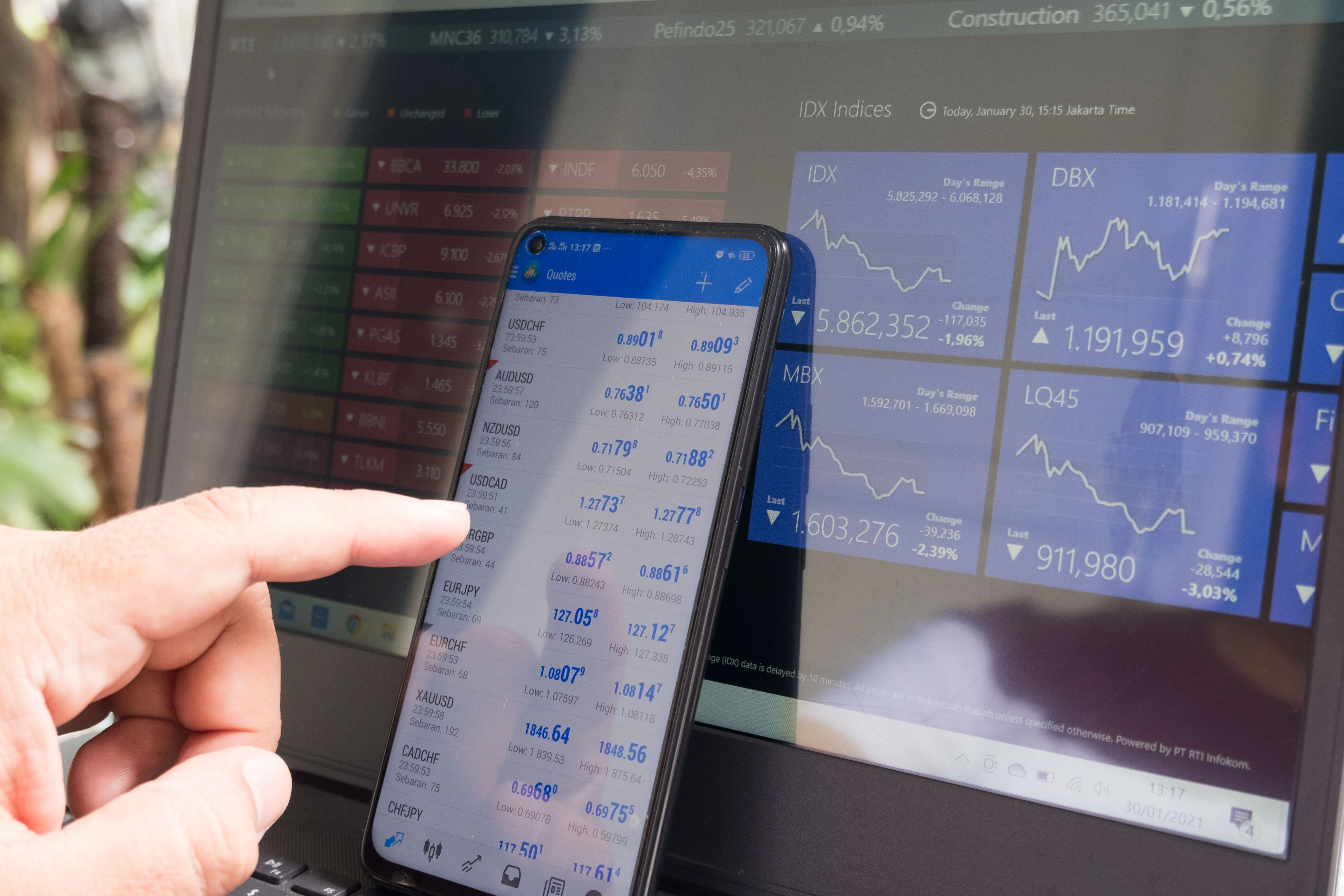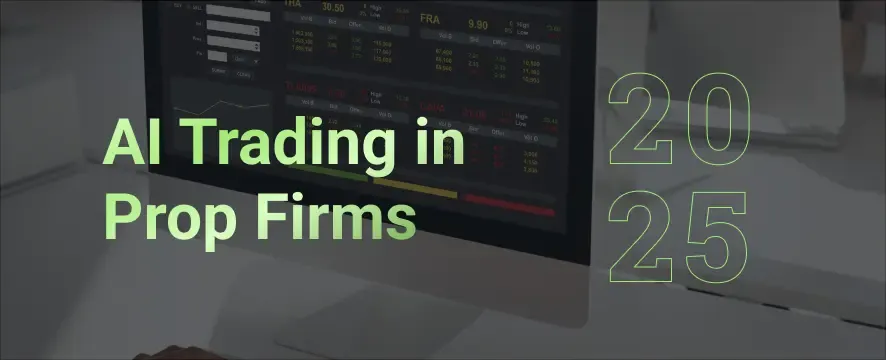
18 min read
Funded Trading Accounts Explained: Types, Benefits & How to Get One
A funded trading account gives you access to a firm’s capital to trade, share profits, and reduce personal risk.
7 min read
Share
With its volatile and sometimes unpredictable nature, Forex Trading has drawn comparisons to gambling.

With its volatile and sometimes unpredictable nature, Forex Trading has drawn comparisons to gambling.
However, the question of ‘Forex vs Gambling’ is easy to answer when we understand that although the Forex Market resembles gambling in a few respects, it has some significant differences.
Gambling fits into two primary categories, namely, chance-based gambling and skill-based gambling. For the purpose of this article, we will focus on chance-based gambling, such as buying a lottery ticket.
We will differentiate between chance-based gambling, which is purely based on luck, and Forex Trading, which is a skill that can be learned and is based on probabilities.
Forex Trading, also known as Currency Trading, is a large, decentralized market where market participants – including individual retail traders speculate on the price of currencies.
These currencies are traded in pairs, each consisting of a base currency and a quote currency.
The exchange rate is the amount of quoted currency needed to purchase one unit of base currency.
For example, if the Exchange rate of the US Dollar (USD) to Japanese Yen (JPY) is 1 / 110, this means 110 Japanese Yen are needed to purchase one US Dollar.
Traders ‘bet’ on currency pairs by going either long or short and make money when the currency pair moves in line with their prediction. The Forex Market operates 24 hours a day and has a daily trading volume of over $6 Trillion.
While some Forex Traders may treat trading as gambling, successful Forex Traders know that it is more than random chance, and that skill in Forex Trading is the ability to use analysis, trading strategy, and knowledge to place trades with a high probability of success.
The key to Forex Trading is placing the odds of success in your favor.
This does not guarantee that every single trade will be a winning trade. However, you should be profitable if you have more winners than losers and adhere to strict risk management practices.
There are three main types of Forex analysis used by Traders before deciding what trades to place:
-> This involves analyzing price action using charts, indicators, support and resistance levels, and other technical indicators. Traders using technical analysis believe that previous price action and patterns can be used to predict future price action.
-> This type of analysis focuses on real-world events and news, such as economic indicators, geopolitical events, central bank policies, and other news as a gauge to try and understand the intrinsic value of a currency on a more fundamental level.
-> This analysis is more concerned about the general feeling of the market participants towards a particular currency. Generally, the sentiment of market participants will be based on either fundamental analysis, technical analysis, or both. Sentiment Analysis tries to determine if market participants are bullish (optimistic), bearish (pessimistic), or neutral (indifferent) toward a currency.
So, unlike chance-based gambling, Forex Trading seeks to put the odds in the trader’s favor.
While there is really no way to mitigate risk in gambling, risk management is a cornerstone of successful Forex Trading.
The concept of risk management in Forex is to avoid big losses when a trade moves against you and to take profit conservatively when a trade moves in your favor.
Even if you have many winning trades, one losing trade can wipe out the gains from several winners. Hence, risk management is essential to overall profitability.
Likewise, with winning trades, it is important to take profit before the trade reverses against you.
Some of the most common risk management techniques include the following:
-> This is an order type that allows the trader to ‘stop’ their losses at a pre-determined level. In other words, when a trade goes against you, the broker allows you to ‘stop’ out of the trade and exit your position before incurring even further losses.
-> This is similar to a ‘stop-loss’ order; however, instead of allowing a trader to exit a losing trade at a pre-determined level, this allows a trader to exit a winning trade when the profit target has been reached. This locks in profit and secures the trader against the trade reversing and going in the opposite direction.
-> Position sizing refers to the amount of capital risked on one trade at any given time. It is recommended to keep each trade to not more than 1-2% of your trading capital. Regardless of how confident you feel entering a trading, there is always an element of unpredictability.
Although chance-based gambling is based purely on luck and randomness. Forex Trading, when done correctly can be somewhat predictable.
Market trends, indicators, news, and market sentiment provide a measure of Forex predictability.
This is why analysis is important before entering a trade. The goal is always to enter trades with a high probability of success.
The Forex Market has years of data for traders to analyze and study, which empowers traders to make calculated decisions based on what the market has previously done and is likely to do.
While gambling has very little regulatory oversight, Forex Trading is regulated by regulatory bodies such as the Financial Conduct Authority (FCA) in the United Kingdom, the Commodity Futures Trading Commission (CFTC) in the United States, and the Australian Securities and Investments Commission (ASIC).
These regulatory bodies ensure that strict standards and rules are upheld by Forex Brokers and provide Forex oversight, which is designed to protect the best interest of Forex Traders.
These Forex regulations provide a transparent and secure environment for market participants.
Having the correct trading psychology is vital to consistent success.
This is in contrast with a gambler who often has no plan, but is simply hoping to get lucky and make a lot of money quickly.
In Forex Trading, ‘get rich quick’ trading is not sustainable and is based on luck – not on a well-developed trading system.
Therefore, the mindset and psychology of a gambler and a consistently profitable trader are completely different.
A profitable trader will develop a clear trading plan, which is based on putting the odds in their favor through detailed analysis.
Furthermore, they will be cautious to adhere to their trading plan and be disciplined in executing their trades.
As we have seen in this article, Forex Trading – when done correctly is vastly different from gambling.
While gamblers try to get rich quickly, successful Forex traders take a rational approach to trading. They focus on building a sustainable trading plan which can be executed repeatedly.
Furthermore, their trades are not based on randomness – but on predictability, using several kinds of analysis to determine when and where to enter and exit trades.
Lastly, unlike gambling, the Forex Market is well-regulated, offering a more transparent and secure environment for traders.
In conclusion, when approached correctly, Forex Trading is not a game of randomness and chance. Instead, it is about well-executed trades based on the probability of success.

18 min read
A funded trading account gives you access to a firm’s capital to trade, share profits, and reduce personal risk.

12 min read
Yes, some prop firms allow news trading. This 2025 guide shows which firms permit it, their rules, and how traders can benefit.

10 min read
A funded trader uses a prop firm’s capital instead of their own. Learn how funded accounts work, profit splits, and how to qualify.

13 min read
To become a funded trader in 2025, you must pass prop firm challenges by mastering strategy, risk control, and trading rules.

9 min read
Discover effective AI trading strategies for prop firms to enhance your profits. Learn practical tips to navigate the market successfully. Read more!
Get an insight from other users about SeacrestFunded and their experiences. 131K+ members and counting

Get instant access to weekly newsletter.